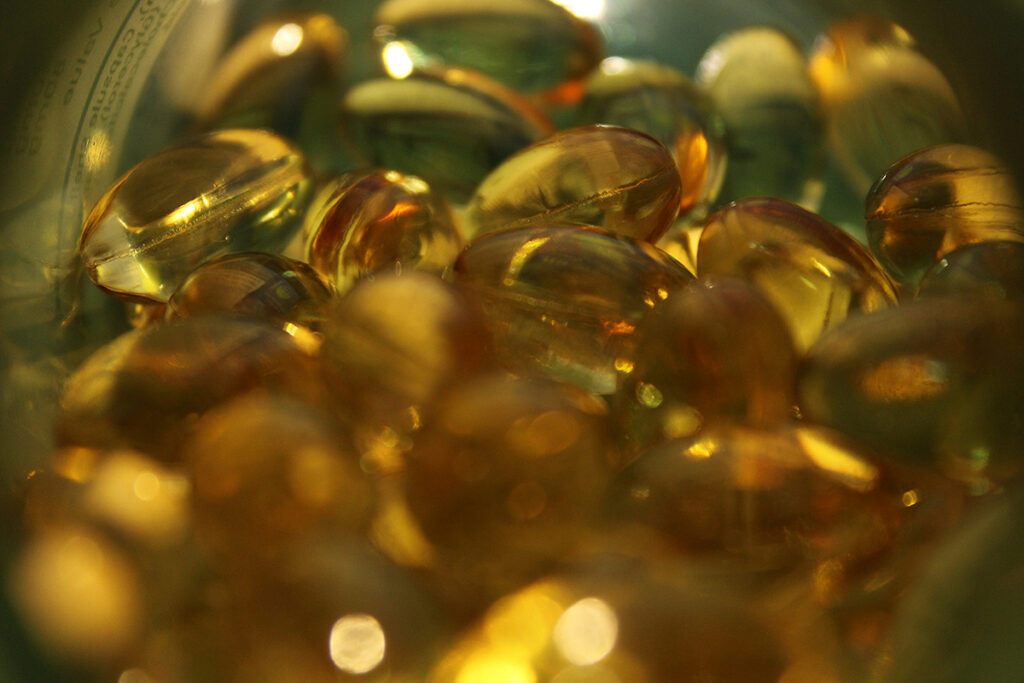Content
- The importance of lycopene for the body
- Lycopene in medicine
- Lycopene in nutrition
- Tomatoes lower cholesterol and blood pressure
- Conclusions
- References
The Value of Lycopene for The Body
Lycopene is a biologically active pigment that gives fruits and vegetables their red color. Lycopene has valuable antioxidant properties for humans and other animals – it protects cells’ genetic information from oxidative stress and suppresses mutations. As Swiss scientists have shown, this is the fundamental biological function of lycopene for the body. Lycopene also regulates cell reproduction, indirectly affecting the immune response and protein synthesis inside cells.
Scientists from the Luxembourg Laboratory of Molecular and Cellular Biology of Cancer claim that among all the carotenoids, of which there are about 600, lycopene is the most powerful scavenger of single oxygen molecules and free radicals. For example, beta-carotene, alpha-tocopherol, lutein and zeaxanthin have two to 100 times lower activity.
Lycopene in Medicine
Scientists from the University of Illinois (USA) confirm the opinion of European colleagues, exploring lycopene for the treatment and prevention of cancer.
Experts from leading universities in Saudi Arabia believe that lycopene brings the most significant benefit for treating and preventing cardiovascular diseases – the leading cause of death worldwide. Scientists refer to several studies conducted in different countries of the world. For example, a Chinese study of 8,556 overweight or obese adults found that high serum lycopene levels reduced the severity of hypertension. Also revealing is a Chinese meta-analysis of 14 observational studies demonstrating that a diet rich in lycopene reduces the risk of coronary heart disease and stroke.
Iranian scientists from the Institute of Pharmaceutical Technologies emphasize the vital role of lycopene in improving the cholesterol profile. Lycopene reduces the level of low-density lipoprotein, which contributes to atherosclerosis, and increases the amount of high-density lipoprotein, which protects blood vessels from damage. Also, Iranian experts suggest using lycopene as an additional or alternative therapy with metformin to treat type 2 diabetes.
Scientists at the Cleveland Center for Reproductive Medicine (USA) consider lycopene deficiency to be one of the causes of male infertility. Experts attribute this to weaker protection of sperm from oxidative stress than eggs.
The central nervous system is also dependent on lycopene levels. Chinese scientists from Nantong University 2018 analyzed all previous world studies and showed that:
- lycopene has a preventive and therapeutic effect on Parkinson’s, Alzheimer’s, cerebral ischemia, epilepsy, and depression;
- prevents neurotoxicity in case of poisoning, alcoholism and treatment with toxic drugs;
- maintains memory and cognitive function in age-related changes in the brain, reducing the risk of dementia.
Later, in 2012, scientists from the University of Alabama (USA) demonstrated in the laboratory that lycopene protects the mitochondria of the cortical neurons of the brain from oxidative stress.
Lycopene also contributes to the preservation of bone tissue. For example, scientists from the University of New York (USA) in laboratory studies have shown that lycopene increases bone mineral density in the postmenopausal period. And Chinese scientists from the Shaanxi University of Technology, also in the laboratory, proved that lycopene alleviates diabetic osteoporosis by improving osteoprotegerin levels and activating osteoclasts.
Lycopene in Nutrition
Consumption rate
Spanish scientists, who published a 2019 review on the nutritional value of carotenoids, consider 5-7 mg of lycopene daily to be sufficient to combat oxidative stress and prevent chronic diseases.
Foods rich in lycopene
Lycopene is found in many fruits and vegetables. But most of all, in tomatoes and watermelons.
In 2016, scientists from Kalasin University (Thailand) calculated the content of lycopene in fresh fruits:
| Fruit | Lycopene, mg/kg |
| Tomatoes | 105 |
| Watermelons | 144 |
| Bananas | 32 |
| Grapes | 10 |
| Oranges | 13 |
However, according to a study by scientists from the University of Düsseldorf (Germany), lycopene is poorly absorbed from fresh tomatoes. As lycopene is a fat-soluble antioxidant, heat treatment and adding fat improve its bioavailability significantly.
For the same reason, the anticholesterol drugs probucol and cholestyramine reduce the level of lycopene in the body, impairing its absorption from the intestines. Swedish scientists obtained these results by observing 303 patients with hypercholesterolemia in a 3-year double-blind, randomized study.
Are there side effects from taking high doses of lycopene?
Employees of the Center for Food Safety and Applied Nutrition (USA) published in 2005 a review of studies of lycopene on safety, toxicity and reproductive function. All experiments were conducted on laboratory animals (mice, rats, rabbits, dogs) and did not reveal significant side effects when using up to 5000 mg of lycopene per day per 1 kg of body weight.
For example, in the review, there is a mention of a study by Swiss scientists on rats and dogs. 1000 mg of lycopene per day per 1 kg of rat weight did not lead to adverse clinical effects or histopathology. And 100 mg per day per 1 kg of dog weight for 6 months did not lead to abnormal blood histological, hematological and chemical changes.
Another study was conducted by German scientists who gave pregnant rats 1500 to 5000 mg of lycopene per day per 1 kg of body weight. Lycopene did not affect maternal body weight, fetal development, or skeletal morphology.
There have been no such studies in humans. However, The New England Journal of Medicine 1960 published the case of a 61-year-old woman who drank about 2 liters of tomato juice daily for several years (about 1500 mg of lycopene per day). As a result, her skin acquired a yellowish tint, and an excess of lycopene was found in the fatty deposits of the liver. However, doctors did not find liver dysfunction, and 3 weeks after the abolition of tomato juice, the woman’s skin color and blood counts returned to normal. This case shows that the effects of high doses of lycopene on the body are reversible.
As a result of the accumulated knowledge about lycopene, the journal Regulatory Toxicology and Pharmacology published 2002 “Summary of Safety Studies Conducted with Synthetic Lycopene.” The summary reported no tolerable upper intake limit for lycopene had been established.
Tomatoes Lower Cholesterol and Blood Pressure
In 2017, scientists from the UK conducted a meta-analysis of 21 scientific studies evaluating the effects of tomato and lycopene supplementation on cholesterol levels, blood pressure, and vascular elasticity.
The total number of research participants is about 1200 people. The studies included both healthy people and patients with cardiometabolic disorders. Participants consumed tomatoes (70–400 g/day) or lycopene supplements (4–30 mg/day).
Meta-analysis results:
- Tomatoes significantly reduced inflammation and “bad” LDL cholesterol and increased vascular elasticity. In addition, in patients with non-Western diets, tomato consumption increased levels of “good” HDL cholesterol.
- Lycopene supplementation significantly reduced systolic blood pressure.
Eating tomatoes and taking lycopene supplements work differently. A possible reason is that, in addition to lycopene, tomatoes contain the antioxidant vitamin C and other valuable substances that lower cholesterol by reducing its absorption in the intestines and helping to remove cholesterol from the body.
Details of the meta-analysis can be found in the article “Tomatoes Lower Cholesterol and Blood Pressure.” The study is published in the journal Atherosclerosis.
Conclusions
Lycopene is a natural antioxidant that gives fruits and vegetables their red color. It protects the genetic information of cells from oxidative stress. For this reason, it is effective in preventing and treating hypertension, atherosclerosis, coronary heart disease, stroke, cancer and brain diseases, type 2 diabetes, and male infertility.
The norm of lycopene consumption is from 5 to 7 mg per day. However, even hundreds of times higher doses do not lead to irreversible health effects.
Most lycopene is found in tomatoes and watermelons. But since lycopene is a fat-soluble antioxidant, it is best absorbed after heat treatment with the addition of oil.
Useful article, necessary information? Share it!
Someone will also find it useful and necessary:
References
- Lycopene: modes of action to promote prostate health
- Antioxidant and anti-proliferative properties of lycopene
- Multitargeted therapy of cancer by lycopene
- Lycopene: A Natural Arsenal in the War against Oxidative Stress and Cardiovascular Diseases
- Higher serum lycopene is associated with reduced prevalence of hypertension in overweight or obese adults
- Lycopene and risk of cardiovascular diseases: A meta-analysis of observational studies
- Berberine and lycopene as alternative or add-on therapy to metformin and statins, a review
- Lycopene and male infertility
- A review for the pharmacological effect of lycopene in central nervous system disorders
- Role of lycopene in mitochondrial protection during differential levels of oxidative stress in primary cortical neurons
- Lycopene treatment against loss of bone mass, microarchitecture and strength in relation to regulatory mechanisms in a postmenopausal osteoporosis model
- Lycopene ameliorates diabetic osteoporosis via anti-inflammatory, anti-oxidation, and increasing Osteoprotegerin/RANKL expression ratio
- Nutritional importance of carotenoids and their effect on liver health: A review
- Analyzing Lycopene Content in Fruits
- Uptake of Lycopene and Its Geometrical Isomers Is Greater from Heat-Processed than from Unprocessed Tomato Juice in Humans
- Probucol Treatment Decreases Serum Concentrations of Diet-Derived Antioxidants
- Are there Adverse Effects of Lycopene Exposure?
- Tomato and lycopene supplementation and cardiovascular risk factors: A systematic review and meta-analysis
- Obesity and the Western Diet: How We Got Here



